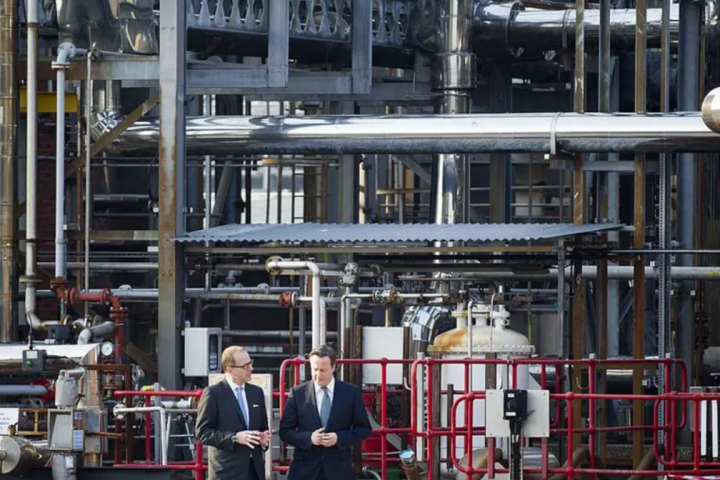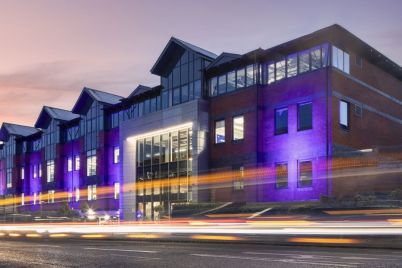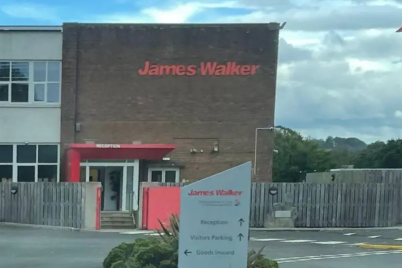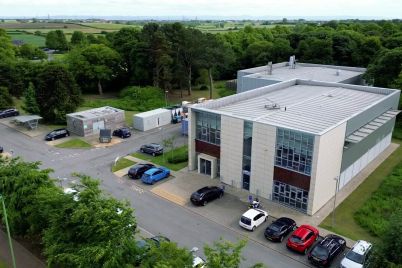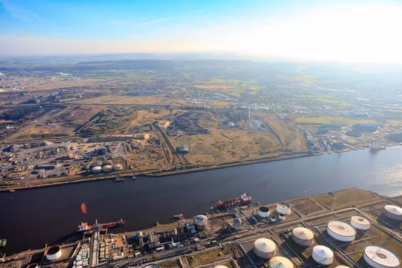Britain’s largest defence firm, BAE Systems, has acquired the former GlaxoSmithKline (GSK) manufacturing site in Ulverston, Cumbria, following the end of production at the long-standing pharmaceutical facility earlier this year.
The company confirmed the purchase of the land from GSK, saying it offers “many redevelopment opportunities”, with plans expected to be finalised in 2026.
The acquisition marks a significant shift for the site, which had been part of Ulverston’s industrial landscape for more than 75 years.
GSK Ulverston, which most recently produced the antibiotic Zinnat for Swiss-owned Sandoz, formally ceased production earlier this year. The plant had been a cornerstone of local employment and innovation since its post-war beginnings, supplying medicines to patients around the world.
BAE has not yet disclosed specific details on how the land will be used but is understood to be considering a range of options linked to its expanding operations across Cumbria.
The site, located on North Lonsdale Road, was decommissioned by GSK after a period of gradual wind-down. The closure brought to an end an era of pharmaceutical production that had shaped the town’s identity for generations.
GSK had previously announced in 2021 that it would be closing the facility after selling the business division responsible for the antibiotics made there.
Site director Phil Wilson said he was proud of GSK Ulverston’s “record of delivering medicines to around two billion patients”, adding that the company was committed to “leaving a lasting legacy in the town” through a £2 million community donation to local projects.
Two initiatives, Ford Park and The Spot, were chosen earlier this year to benefit from the legacy funding.
The site’s closure marked what many locals described as the end of an era. Former employees spoke of their pride in having worked for the company and of the impact the plant had on the wider community.
Michael Beck, who worked as a mechanical fitter at GSK for 25 years, described it as “a fabulous company” that offered stability and respect. “It’s very sad. Very sad for the town, for the people and the business it brings,” he said.
Another resident, Diane Rushton, whose family worked at the factory for decades, reflected on the site’s importance to Ulverston’s economy. “If you got in at Glaxo, you were made – good money. There was only really there and Vickers as major employers in the area at the time,” she said.
Michelle Scrogham, MP for Barrow and Furness, welcomed BAE Systems’ purchase of the site, describing it as an opportunity to build on Ulverston’s industrial heritage. She previously convened a task force to coordinate planning for the land’s future use and said the move could bring new energy and investment to the area.
In 2017, GSK announced it would not proceed with a planned £350 million biopharmaceutical expansion at the Ulverston site, warning that 191 jobs were at risk.
Despite this, the company maintained operations for several more years before confirming its closure plans.
Now, with BAE Systems’ acquisition, the site may once again play a role in shaping the region’s industrial future. While details remain under development, the company’s expansion across South Cumbria – linked to its growing submarine and defence programmes – suggests that the Ulverston site could become an important part of that wider strategy.
The transition from pharmaceuticals to defence marks a new chapter in Ulverston’s story. For many, it represents both a farewell to a proud legacy and the beginning of new possibilities for one of Cumbria’s most historically significant industrial sites.



